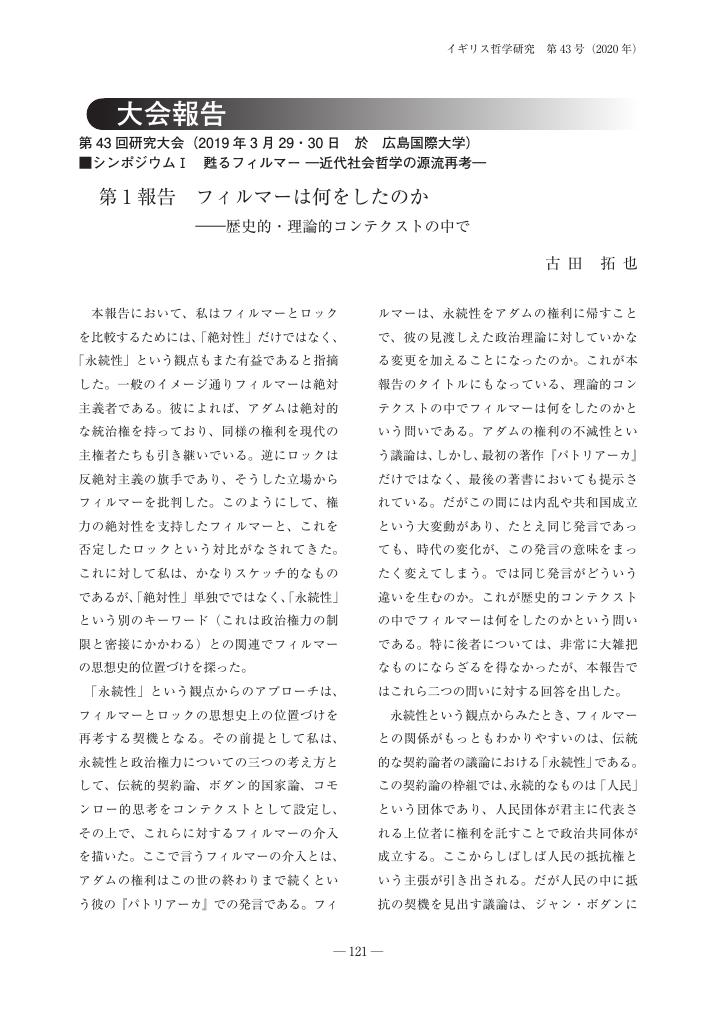11 0 0 0 OA 宗教的自由をいかに擁護すべきか ハーバーマスとヌスバウムによる政治的リベラリズムの観点から
- 著者
- 高田 宏史
- 出版者
- 政治哲学研究会
- 雑誌
- 政治哲学 (ISSN:24324337)
- 巻号頁・発行日
- vol.24, pp.1-18, 2018 (Released:2019-05-24)
- 参考文献数
- 24
4 0 0 0 OA チャールズ・テイラーの多元主義的政治理論 : 「世俗主義」の再検討を中心に
3 0 0 0 OA 公共宗教と世俗主義の限界
- 著者
- 高田 宏史
- 出版者
- 日本政治学会
- 雑誌
- 年報政治学 (ISSN:05494192)
- 巻号頁・発行日
- vol.64, no.1, pp.1_38-1_59, 2013 (Released:2016-07-01)
- 参考文献数
- 27
This article examines Jose Casanova's theory of public religion which first appears on his Public Religion in the Modern World, and the reorganization of liberal secularism that Charles Taylor discussed in his Secularism and the Freedom of Conscience. In Casanova's theory, public religion was expected to complement politics of liberal democracy. This theory affects many political thinkers including Charles Taylor. Then, Taylor set forth the ‘liberal and pluralistic’ secularism which assigns important political roles on (public) religion. But Casanova himself now criticizes his theory of public religion and ‘liberal’ secularism. This article would articulate why and how he criticizes his original position and liberal projects of reorganizing secularism. In conclusion, I specify some limits of liberal and pluralistic kinds of secularism. They cannot flee from their inherent tendency to ‘violence’ and treat secular (or Christian) arguments and non-Western religious arguments, e.g. Islam, equally.
- 著者
- 高田 宏史
- 出版者
- 武蔵野大学政治経済研究所
- 雑誌
- 武蔵野大学政治経済研究所年報 (ISSN:21852170)
- 巻号頁・発行日
- no.7, pp.45-76, 2013

